
Click to Skip Ahead
Guinea pigs are popular pets, especially with children, and they can be great fun to watch and play with. They eat mostly hay but can have a wide variety of vegetables and fruits too. What about the mandarin, though? Is it safe for guinea pigs? Fortunately, it is! Mandarin is safe for guinea pigs. However, keep reading as we discuss portion size, frequency, and other options to help you keep your guinea pig happy and healthy.
What Is a Mandarin?
Mandarins, or tangerines, are citrus fruits with a sweet, tangy flavor. They are an excellent source of vitamin C, which is crucial for guinea pigs, as their bodies cannot create this vitamin. Vitamin C helps maintain a healthy immune system, aids in wound healing, and supports the overall well-being of your furry companion. Mandarins also contain dietary fiber, which aids digestion, and essential minerals like potassium and calcium. However, it’s worth noting that mandarins are relatively high in natural sugars, which can affect your guinea pig’s health if consumed excessively, leading to obesity and other problems.
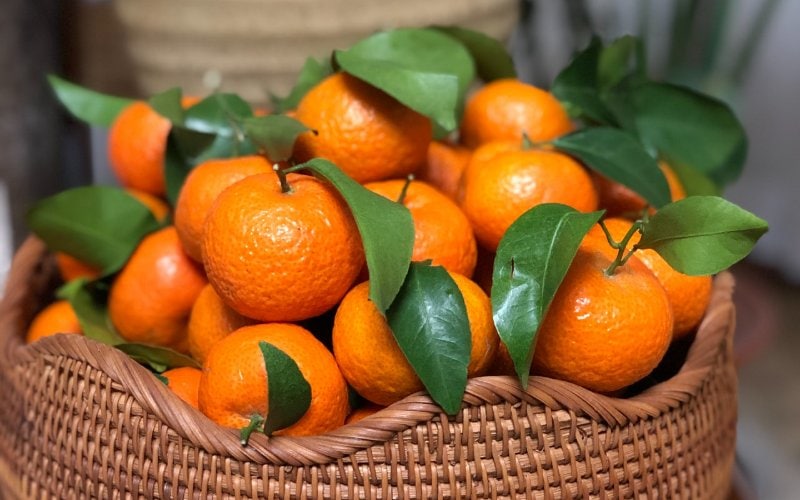
Benefits of Feeding Mandarins to Guinea Pigs
Risks of Feeding Mandarins to Guinea Pigs
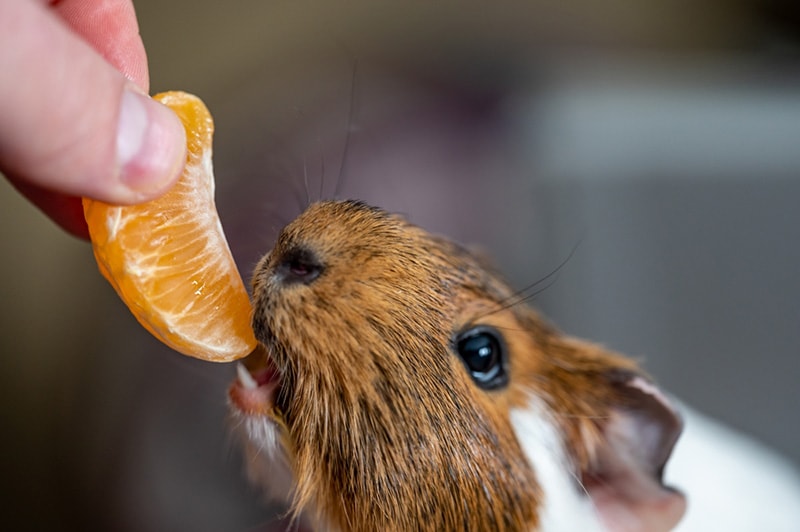
How to Feed Mandarins to Guinea Pigs
The 4 Alternatives to Mandarins
1. Bell Peppers
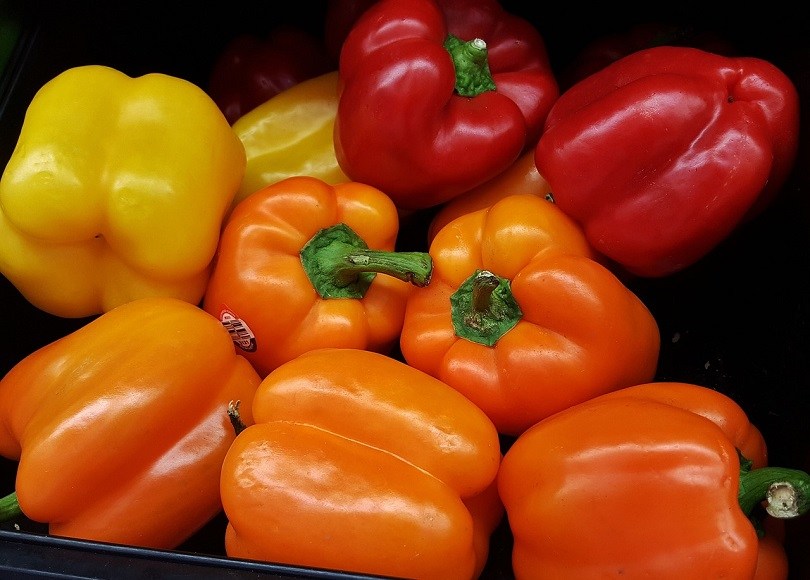
A bell pepper is an excellent source of vitamin C and provides a crunchy texture that guinea pigs enjoy. Choose red, yellow, or orange varieties for the highest vitamin C content or green to keep the sugar level down.
2. Kiwis
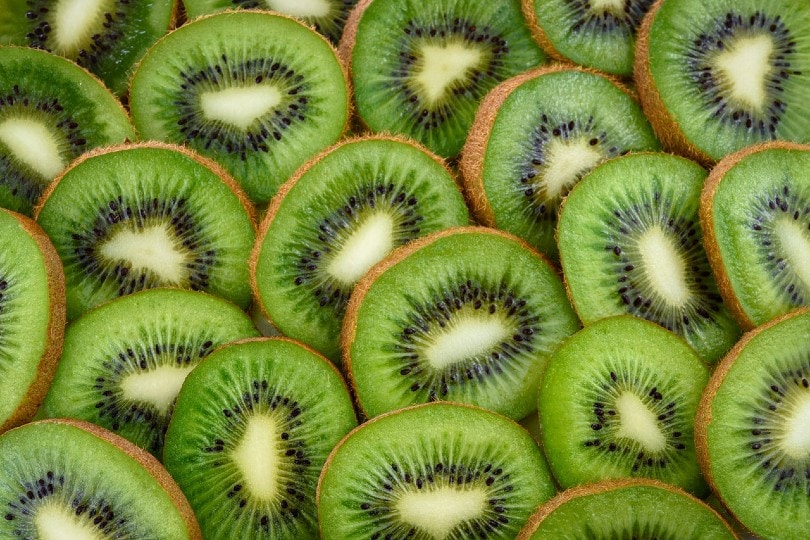
Kiwi is a fruit rich in vitamin C and fiber. It can be given to guinea pigs in small amounts, albeit with the skin removed, as it may be too tough for them to digest.
3. Strawberries

Strawberries contain vitamin C and antioxidants. Offer a small slice occasionally as a treat.
4. Oranges
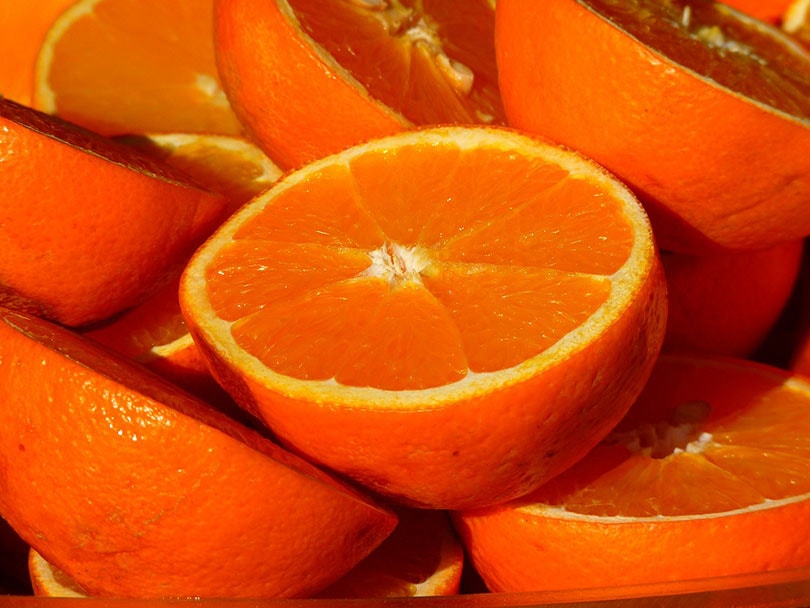
Oranges, like mandarins, are citrus fruits, so be cautious if your guinea pig has shown sensitivity to acidic foods. That said, oranges are also high in vitamin C, and many guinea pigs enjoy them in small amounts.
Frequently Asked Questions
Can Guinea Pigs Eat Mandarin Peels?
No, guinea pigs should not eat mandarin peels. These can be difficult to digest, contain essential oils and may cause digestive issues. It’s best to remove the peel and only offer the fleshy segments of the mandarin.
How Should I Introduce Mandarins to My Guinea Pig?
When adding a mandarin to your guinea pig’s diet, start with a small piece, and closely observe their reaction. You can gradually increase the amount if there are no signs of digestive upset or sensitivity.
Can Guinea Pigs Eat Canned Mandarins?
Canned fruits often contain added sugars, syrups, or preservatives that can harm a guinea pig’s health. It’s best to only offer them fresh, whole mandarins to ensure their safety.
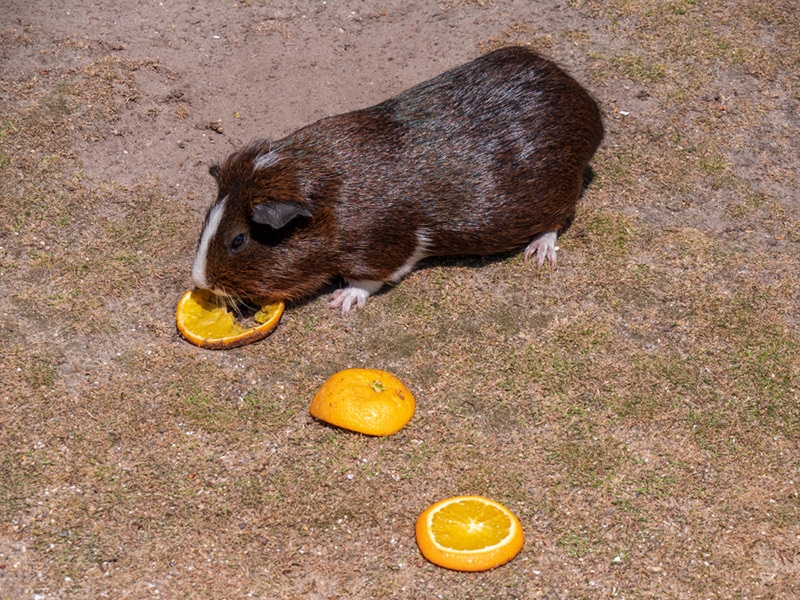
Conclusion
Your guinea pig can occasionally eat a little mandarin in small amounts if you don’t notice any digestive issues or other problems once they do. They can provide plenty of vitamin C and antioxidants and help hydrate your pet. Wash them carefully, remove the rind, and cut up one segment into small pieces before feeding them to your pet. You can provide mandarins as treats one to two times per month, but don’t do it any more than that, as they contain a large amount of sugar, and some pets might be sensitive to their acidic nature.
See Also:
- Can Guinea Pigs Eat Honeydew? Vet-Approved Benefits & Risks
- Can Guinea Pigs Eat Tangerines? Vet-Reviewed Facts & FAQ
Featured Image Credit: Hermann & F. Richter, Pixabay









